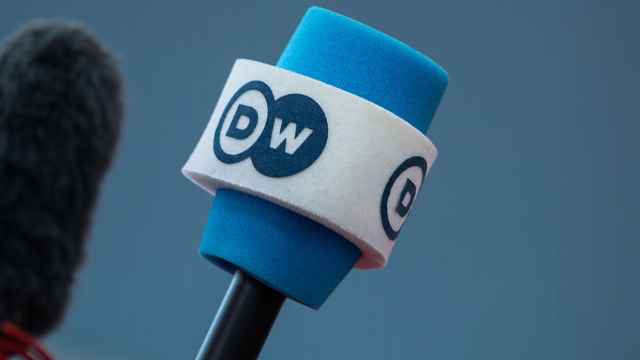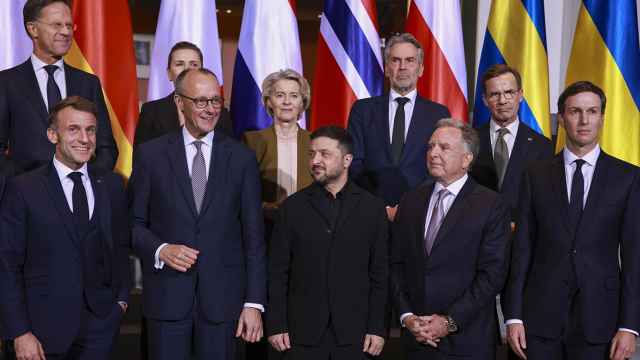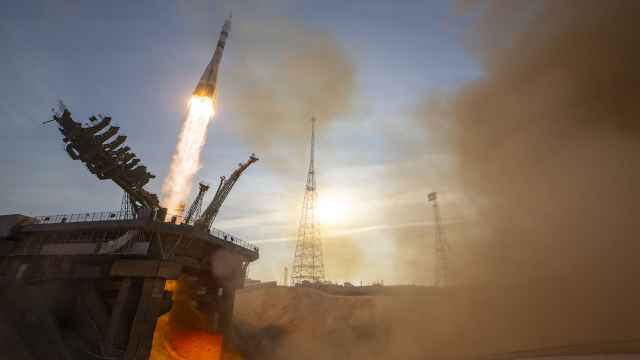Standard & Poor's, which has upgraded more junk-rated companies in Russia this year than in any of the largest emerging markets, said Vladimir Putin's reduced majority in parliament could dampen his willingness to undertake spending cuts needed for a higher sovereign rating.
The extra yield investors demand to hold Russian government debt over U.S. Treasuries fell six basis points earlier this week to 316, while the spread narrowed by eight for Brazil, rated the same by S&P at BBB. Support for Putin's United Russia party dropped to 49.5 percent in the Dec. 4 vote, down from 64.3 percent in 2007, electoral commission data show. The party secured 238 seats, or 52.9 percent of the 450-member Duma.
While S&P lifted ratings on 25 non-investment grade Russian companies in 2011 as oil's 10 percent jump spurred growth triple the euro zone's pace, the New York-based agency hasn't adjusted the government ranking since 2008. The election may mean Prime Minister Putin, who is running for president in March, will oversee deficits and avoid reforms such as cutting pensions and diversifying the economy away from energy, S&P said in a report.
"The election outcome would have dampened the government's willingness to touch broadly unpopular issues, such as reforming social systems," Kai Stukenbrock, a primary credit analyst at S&P in Frankfurt, said by e-mail in response to questions. "We do indeed expect the budget to slip into deficit next year."
United Russia's reduced majority boosts "political uncertainty" in the country and raises the possibility of an increase in "populist fiscal spending," Fitch Ratings analysts said in a separate report released Tuesday. Fitch rates Russia BBB, also the same level as Brazil, and won't upgrade the world's largest energy exporter until it addresses its vulnerability to fluctuations in oil prices and economic and fiscal issues, the report said.
While Finance Minister Anton Siluanov expects to run a budget surplus equal to 0.5 percent of gross domestic product this year, Putin said in November that the government expects a shortfall equivalent to 1.5 percent of GDP in 2012.
As the European debt crisis spurs a slowdown in the global economy, S&P expects Brent crude oil to slide 14 percent from current levels, resulting in a Russian deficit of 2.8 percent of GDP, Stuckenbrock said.
The yield spread on Russian bonds is 87 basis points below the average for emerging markets, according to indexes compiled by JPMorgan Chase.
The cost of protecting Russian debt against non-payment for five years using credit-default swaps slipped 11 basis points to 215 basis points, according to data provider CMA, which is owned by CME Group and compiles prices quoted by dealers in the privately negotiated market. The contracts pay the buyer face value in exchange for the underlying securities or the cash equivalent should a borrower fail to adhere to its debt agreements.
Non-deliverable forwards, which provide a guide to expectations of currency movements, showed the ruble at 31.4924 per dollar in three months, from 31.1540 at the end of November.
While Moody's Investors Service upgraded Brazil to one step below Russia in June and S&P raised Indonesia's rating in April, all three ratings companies have kept Russia on hold since 2008. Putin called the nation's ranking an "outrage" in July, saying all Russian companies are penalized and made to pay higher borrowing costs because of the level of the sovereign.
The average yield on Russian corporate bonds has climbed 73 basis points to 6.52 percent this year, while Brazilian company debt yields are little changed at 6.19 percent, JPMorgan data show.
Russia had a total 30 companies' long-term ratings upgraded this year, the most since 2008. Of the 35 Brazilian borrowers that had their ratings boosted by S&P, 12 were rated junk, data compiled by Bloomberg show. In China, two of the seven upgraded were non-investment grade while in India the ratio was one of four.
Alexander Morozov, chief economist for Russia and the former Soviet Union at HSBC Holdings in Moscow, said last week that some junk-rated companies may be raised to investment grade in Russia "as soon as next year."
Russia's economy grew 4.8 percent in the third quarter, compared with a 1.4 percent expansion in the euro area, according to government data. Oil and natural gas makes up 17 percent of Russia's economy and account for as much as 40 percent of budget revenue, according to former Finance Minister Alexei Kudrin.
Policy changes facing the new government and the next president may be bigger today than at President Dmitry Medvedev's election victory in early 2008, when the economy was growing at a pace of more than 9 percent, according to S&P. Putin said in September that he would run again for the presidency in a March vote. He had to give up the position in 2008 after eight years because of a constitutional limit on serving more than two consecutive terms.
Before the Dec. 4 poll, United Russia had the two-thirds majority necessary to change the nation's Constitution.
The election results "give the new government a stable parliamentary majority to rely on," S&P analysts led by Stukenbrock wrote. "However, the loss of the constitutional majority implies to us that the new government will find it more difficult to implement sweeping reforms."
A Message from The Moscow Times:
Dear readers,
We are facing unprecedented challenges. Russia's Prosecutor General's Office has designated The Moscow Times as an "undesirable" organization, criminalizing our work and putting our staff at risk of prosecution. This follows our earlier unjust labeling as a "foreign agent."
These actions are direct attempts to silence independent journalism in Russia. The authorities claim our work "discredits the decisions of the Russian leadership." We see things differently: we strive to provide accurate, unbiased reporting on Russia.
We, the journalists of The Moscow Times, refuse to be silenced. But to continue our work, we need your help.
Your support, no matter how small, makes a world of difference. If you can, please support us monthly starting from just $2. It's quick to set up, and every contribution makes a significant impact.
By supporting The Moscow Times, you're defending open, independent journalism in the face of repression. Thank you for standing with us.
Remind me later.





